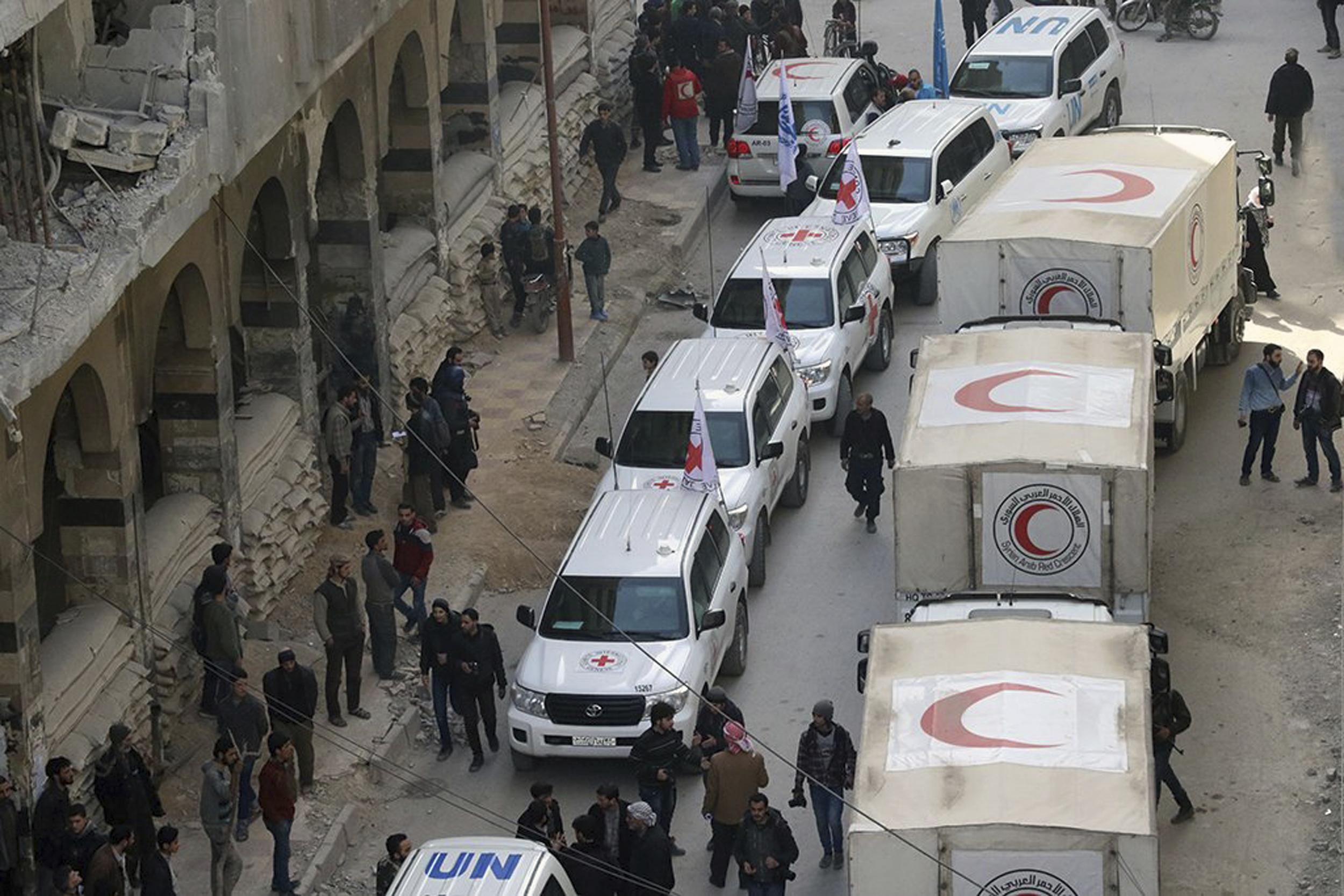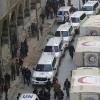
The first aid delivery in weeks to reach the besieged eastern suburbs of Damascus was cut short after Syrian government forces began shelling the area while aid workers were still inside, a local coun
BEIRUT (AP) — The first aid delivery in weeks to reach the besieged eastern suburbs of Damascus was cut short after Syrian government forces began shelling the area while aid workers were still inside, a local council said on Tuesday.
Monday’s shipment was the first to enter eastern Ghouta amid weeks of a crippling siege and a government assault that has killed hundreds of civilians since February 18.
The International Committee for the Red Cross confirmed that its joint convoy with the United Nations had to leave before offloading all its supplies on account of the deteriorating security situation.
Ingy Sedky, the ICRC spokeswoman in Syria, said most of the aid from a 46-truck convoy was delivered to the town of Douma in eastern Ghouta but the mission was cut short before the rest of the supplies could be unloaded.
Iyad Abdelaziz, a member of the Douma Local Council, said nine aid trucks had to leave the area after government shelling and airstrikes intensified in the evening.
At least 50 civilians were killed Monday by shelling and airstrikes in eastern Ghouta as the Syrian government, backed by Russia’s military, showed no signs of easing its assault on the beleaguered region, despite a U.N. Security Council resolution passed Feb. 25 demanding a 30-day cease-fire.
The convoy that reached Douma on Monday carried only a fraction of the relief needed for the estimated 400,000 people trapped under the government’s siege. The U.N.’s humanitarian office said the convoy carried food for 27,500 people.
But it said the Syrian government offloaded 70 percent of the health supplies, including trauma and surgical kits and insulin, before allowing the convoy to enter eastern Ghouta.
The government routinely removes lifesaving medical supplies from aid convoys, in a pattern of denying such aid to civilians living in opposition areas. U.N. officials have complained for years about such actions by the Syrian government.






